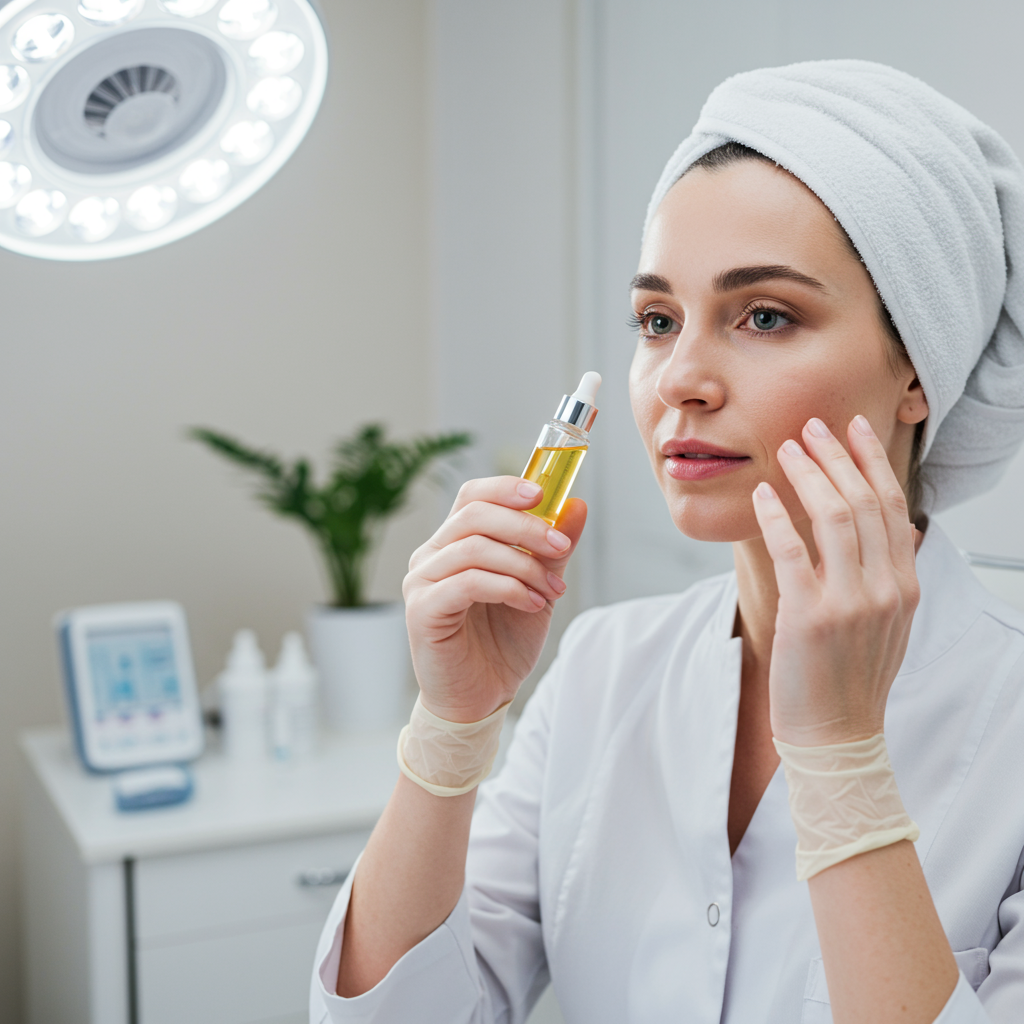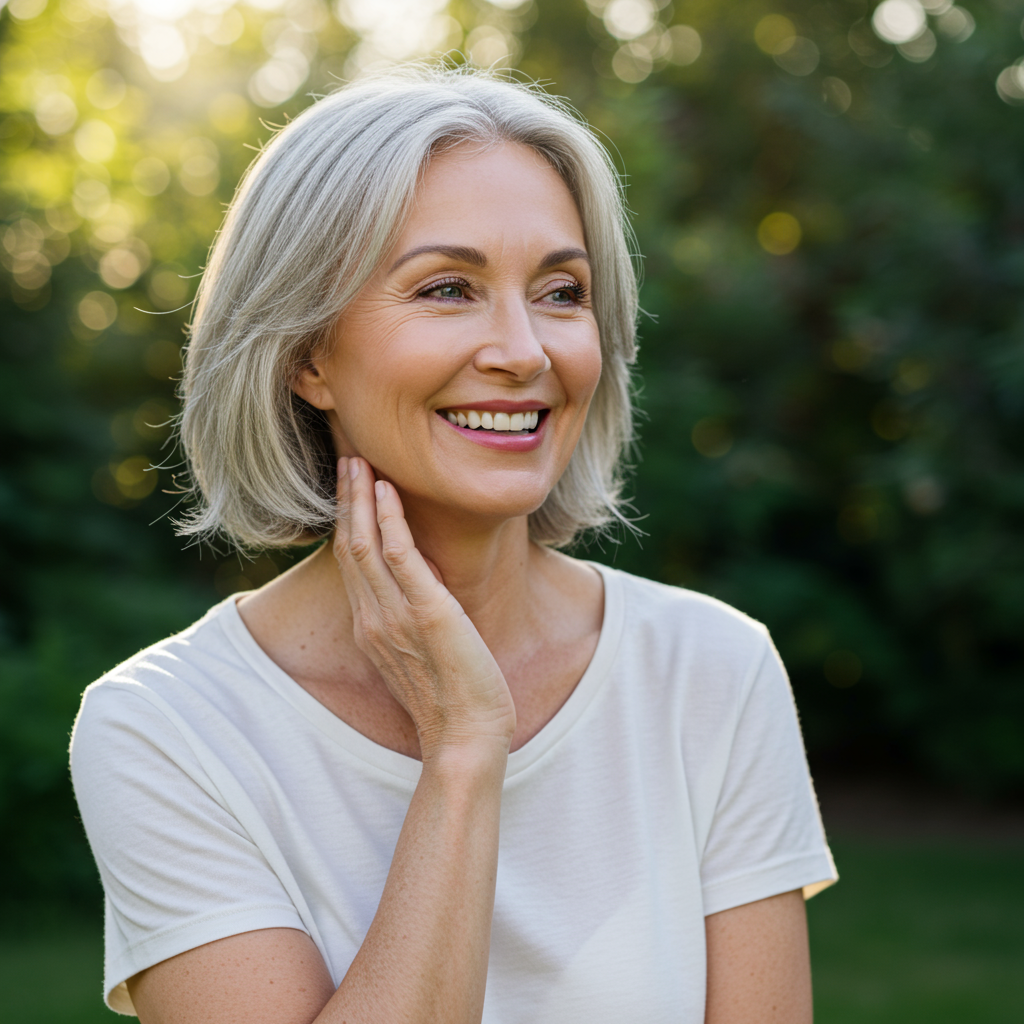
Table of Contents
Introduction
Aging is a natural process that every person experiences, but that doesn’t mean your skin has to show its effects prematurely. Have you ever looked in the mirror and wondered how to maintain a youthful, radiant complexion despite the passing years? The secret lies in using the right skincare products specifically designed to address the unique challenges aging skin presents. Caring for aging skin is not just about appearance—it’s about maintaining the health and resilience of your skin as it undergoes significant changes over time.
Understanding the importance of targeted skincare for aging skin is essential because the skin’s structure evolves with age, often leading to issues like wrinkles, dryness, and loss of elasticity. Many find themselves searching for products that can truly make a difference, but with so many options available, it can become overwhelming. That’s why a comprehensive guide is necessary to help you navigate this complex landscape and find effective solutions that restore not just your skin, but also your confidence.
The concerns that come with aging skin go beyond the physical changes. As skin ages, people can feel a sense of loss regarding their youthful appearance, which affects self-esteem and well-being. Skincare products tailored for aging skin work to combat these effects by nourishing, protecting, and revitalizing the skin at a cellular level. Whether it’s harnessing the power of ingredients like peptides to boost collagen production or using hyaluronic acid to hydrate and plump, the right formulations can support your skin’s natural ability to regenerate and defend itself.
Before diving into specifics, it’s important to understand how various skincare routines and products work together to create a holistic approach. This might include understanding how to care for sensitive or reactive aging skin or incorporating natural remedies like homemade face masks for glowing skin as complementary treatments. Knowing the basics of a good skincare routine and how it can be adapted for aging concerns is equally critical to achieving lasting results.
What You’ll Learn in This Guide
In this comprehensive guide, we’ll walk you through everything you need to know about caring for aging skin with the right products and techniques. Here’s what we’ll cover:
- Understanding Aging Skin: We’ll explore the common signs and structural changes in aging skin, such as wrinkles, fine lines, dryness, and loss of elasticity. This knowledge forms the foundation for choosing effective skincare solutions.
- Key Ingredients to Look For: Learn about essential ingredients like retinol, peptides, hyaluronic acid, vitamin C, and niacinamide that specifically address aging concerns. You’ll understand their benefits and how they work to rejuvenate your skin.
- Types of Skincare Products: Discover the different categories of products tailored for aging skin, including serums, moisturizers, and sunscreens. We’ll explain the purpose of each type and how to select formulations suited to your needs.
- Effective Usage Tips: Building a skincare routine can be challenging, so we’ll provide guidance on product layering, application techniques, and consistency to ensure you get the best results from your products.
As you continue reading, we’ll dive deeper into each of these topics, providing detailed information and practical advice. By the end of this guide, you will have a thorough understanding of how to approach aging skin care effectively and confidently.
We’ll examine beneficial ingredients such as retinol, which stimulates cell turnover and reduces wrinkles, alongside hydrating compounds like hyaluronic acid. You’ll learn about the supportive role of peptides in collagen production and the antioxidant protection offered by vitamin C. Plus, we’ll discuss how to incorporate these ingredients safely into your daily routine.
Furthermore, this guide will highlight the variety of product types—serums with concentrated active ingredients, moisturizers that enhance skin texture and strength, and sunscreens that protect against harmful UV rays to prevent premature aging. Understanding these options will empower you to build a personalized skincare regimen that suits your unique skin needs.
In addition to product insights, we’ll share prevention strategies and lifestyle tips that complement your skincare routine, helping you nurture healthy aging skin from the inside out. Finally, you’ll find advice on recognizing when it’s time to consult a dermatologist, ensuring your approach to aging skin remains both safe and effective.
Embark on this journey to rediscover youthful, vibrant skin and embrace your age with confidence and grace. Let’s explore the world of skincare products for aging skin together and unlock the secrets to a radiant complexion that lasts well beyond the years.

Aging skin is a natural part of the life cycle, marked by visible and structural changes that reflect the passage of time and environmental influences. As the skin ages, it often becomes less resilient, loses moisture, and shows signs such as fine lines, wrinkles, and uneven texture. These changes necessitate a specialized skincare approach to nurture and protect the skin’s health and vitality. Understanding the specific needs of aging skin and the types of products that address these challenges can empower individuals to maintain a youthful and radiant complexion. In the following discussion, we will delve deeper into the signs of aging, essential skincare ingredients, and practical routines to help you age gracefully and confidently.
Recognizing the Signs of Aging Skin
Aging skin undergoes a series of transformations that affect both its appearance and function. These changes typically begin to emerge in the late 20s or 30s, accelerating over time due to intrinsic factors like genetics and extrinsic ones such as sun exposure and pollution. Common signs include the formation of wrinkles and fine lines, which result from diminished collagen and elastin production. The skin’s ability to retain moisture decreases, leading to dryness and a rougher texture. Additionally, the loss of elasticity can cause sagging, while pigmentation irregularities like age spots and dullness become more apparent. Recognizing these signs early is crucial to selecting appropriate products and treatments to slow down further damage and maintain skin health.
Environmental factors play a significant role in accelerating skin aging. Ultraviolet (UV) radiation from the sun is a primary culprit, causing oxidative stress and breakdown of structural proteins within the skin. Other lifestyle influences such as smoking, poor nutrition, and insufficient hydration also contribute to premature aging. Furthermore, hormonal changes, particularly during menopause, can exacerbate the visibility of aging signs by affecting skin thickness and moisture levels. A comprehensive understanding of these signs and underlying causes can guide the choice of effective skincare products and lifestyle adjustments to support skin resilience.
Key Aspects of Aging Skin Signs
Below are the fundamental signs that indicate aging skin and their implications for skincare:
- Wrinkles and Fine Lines: These are the most recognizable signs of aging, mainly appearing around the eyes, mouth, and forehead. They result from the reduction of collagen and elastin, causing the skin to lose its firmness and suppleness.
- Dryness and Dehydration: Aging skin produces less natural oil, leading to dryness and a compromised skin barrier. This makes the skin more prone to irritation and rough patches.
- Loss of Elasticity: With age, the skin’s structural proteins deteriorate, causing sagging and less bounce-back ability. This contributes to an aged and tired appearance.
- Uneven Skin Tone and Pigmentation: Age spots, sun damage, and dullness are common as cellular turnover slows, and melanin production becomes irregular. This results in a blotchy and lackluster complexion.
Essential Ingredients in Skincare Products for Aging Skin
Combatting the visible and underlying signs of aging skin requires targeted active ingredients that nourish, repair, and protect. These ingredients work synergistically to stimulate collagen production, enhance hydration, and shield against environmental damage. The science behind these components is well supported by clinical studies demonstrating their effectiveness in reducing wrinkles, improving texture, and restoring radiance. Choosing products fortified with these key ingredients ensures a well-rounded approach to skin aging, optimizing results through daily care.
Some skincare products combine multiple active ingredients to address several aging concerns concurrently. These formulations can include serums, moisturizers, and sunscreens tailored to different skin types and sensitivities. Understanding the benefits of each ingredient helps you customize your skincare routine for maximum effectiveness. Additionally, consistency in application and proper layering enhance the absorption and potency of these ingredients, leading to better skin outcomes over time.
Important Considerations for Key Ingredients
Incorporating these ingredients into your skincare routine can have profound benefits for aging skin:
- Retinol: A derivative of Vitamin A that accelerates cell turnover and boosts collagen synthesis, helping to reduce the appearance of fine lines and wrinkles. It also aids in smoothing the skin surface and evening out discoloration.
- Hyaluronic Acid: Known for its remarkable ability to attract and retain moisture, it plumps the skin and alleviates dryness, giving a youthful, supple appearance. It works well in conjunction with other moisturizers and serums.
- Peptides: These small protein fragments support the skin’s collagen infrastructure, improving firmness and elasticity. Peptides also promote healing and skin regeneration, which are vital for aging skin’s repair mechanisms.
- Vitamin C: A powerful antioxidant that brightens the complexion and protects against free radicals caused by UV exposure and pollution. It also enhances collagen production and reduces inflammation.
- Niacinamide: This versatile ingredient improves skin texture and tone by reducing redness, minimizing pores, and strengthening the skin barrier. It is beneficial for sensitive and mature skin types alike.

